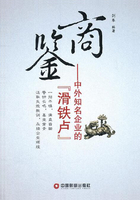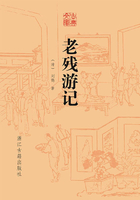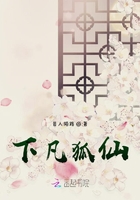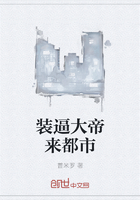Presently amid the dancers he saw a lady so beautiful and so lovable that from that moment he never again gave one thought to that Rosaline whom he had thought he loved. And he looked at this other fair lady, as she moved in the dance in her white satin and pearls, and all the world seemed vain and worthless to him compared with her. And he was saying this, or something like it, when Tybalt, Lady Capulet's nephew, hearing his voice, knew him to be Romeo. Tybalt, being very angry, went at once to his uncle, and told him how a Montagu had come uninvited to the feast; but old Capulet was too fine a gentleman to be discourteous to any man under his own roof, and he bade Tybalt be quiet. But this young man only waited for a chance to quarrel with Romeo.
In the meantime Romeo made his way to the fair lady, and told her in sweet words that he loved her, and kissed her. Just then her mother sent for her, and then Romeo found out that the lady on whom he had set his heart's hopes was Juliet, the daughter of Lord Capulet, his sworn foe. So he went away, sorrowing indeed, but loving her none the less.
Then Juliet said to her nurse:
"Who is that gentleman that would not dance?""His name is Romeo, and a Montagu, the only son of your great enemy," answered the nurse.
Then Juliet went to her room, and looked out of her window, over the beautiful green-grey garden, where the moon was shining. And Romeo was hidden in that garden among the trees--because he could not bear to go right away without trying to see her again. So she--not knowing him to be there--spoke her secret thought aloud, and told the quiet garden how she loved Romeo.
And Romeo heard and was glad beyond measure. Hidden below, he looked up and saw her fair face in the moonlight, framed in the blossoming creepers that grew round her window, and as he looked and listened, he felt as though he had been carried away in a dream, and set down by some magician in that beautiful and enchanted garden.
"Ah--why are you called Romeo?" said Juliet. "Since I love you, what does it matter what you are called?""Call me but love, and I'll be new baptized--henceforth I never will be Romeo," he cried, stepping into the full white moonlight from the shade of the cypresses and oleanders that had hidden him.
She was frightened at first, but when she saw that it was Romeo himself, and no stranger, she too was glad, and, he standing in the garden below and she leaning from the window, they spoke long together, each one trying to find the sweetest words in the world, to make that pleasant talk that lovers use. And the tale of all they said, and the sweet music their voices made together, is all set down in a golden book, where you children may read it for yourselves some day.
And the time passed so quickly, as it does for folk who love each other and are together, that when the time came to part, it seemed as though they had met but that moment-- and indeed they hardly knew how to part.
"I will send to you to-morrow," said Juliet.
And so at last, with lingering and longing, they said good-bye.
Juliet went into her room, and a dark curtain bid her bright window.
Romeo went away through the still and dewy garden like a man in a dream.
The next morning, very early, Romeo went to Friar Laurence, a priest, and, telling him all the story, begged him to marry him to Juliet without delay. And this, after some talk, the priest consented to do.
So when Juliet sent her old nurse to Romeo that day to know what he purposed to do, the old woman took back a a message that all was well, and all things ready for the marriage of Juliet and Romeo on the next morning.
The young lovers were afraid to ask their parents' consent to their marriage, as young people should do, because of this foolish old quarrel between the Capulets and the Montagues.
And Friar Laurence was willing to help the young lovers secretly, because he thought that when they were once married their parents might soon be told, and that the match might put a happy end to the old quarrel.
So the next morning early, Romeo and Juliet were married at Friar Laurence's cell, and parted with tears and kisses. And Romeo promised to come into the garden that evening, and the nurse got ready a rope-ladder to let down from the window, so that Romeo could climb up and talk to his dear wife quietly and alone.
But that very day a dreadful thing happened.
Tybalt, the young man who had been so vexed at Romeo's going to the Capulet's feast, met him and his two friends, Mercutio and Benvolio, in the street, called Romeo a villain, and asked him to fight. Romeo had no wish to fight with Juliet's cousin, but Mercutio drew his sword, and he and Tybalt fought. And Mercutio was killed. When Romeo saw that this friend was dead, he forgot everything except anger at the man who had killed him, and he and Tybalt fought till Tybalt fell dead.
So, on the very day of his wedding, Romeo killed his dear Juliet's cousin, and was sentenced to be banished. Poor Juliet and her young husband met that night indeed; he climbed the rope-ladder among the flowers, and found her window, but their meeting was a sad one, and they parted with bitter tears and hearts heavy, because they could not know when they should meet again.
Now Juliet's father, who, of course, had no idea that she was married, wished her to wed a gentleman named Paris, and was so angry when she refused, that she hurried away to ask Friar Laurence what she should do. He advised her to pretend to consent, and then he said:
"I will give you a draught that will make you seem to be dead for two days, and then when they take you to church it will be to bury you, and not to marry you. They will put you in the vault thinking you are dead, and before you wake up Romeo and I will be there to take care of you. Will you do this, or are you afraid?""I will do it; talk not to me of fear!" said Juliet. And she went home and told her father she would marry Paris. If she had spoken out and told her father the truth . . . well, then this would have been a different story.















